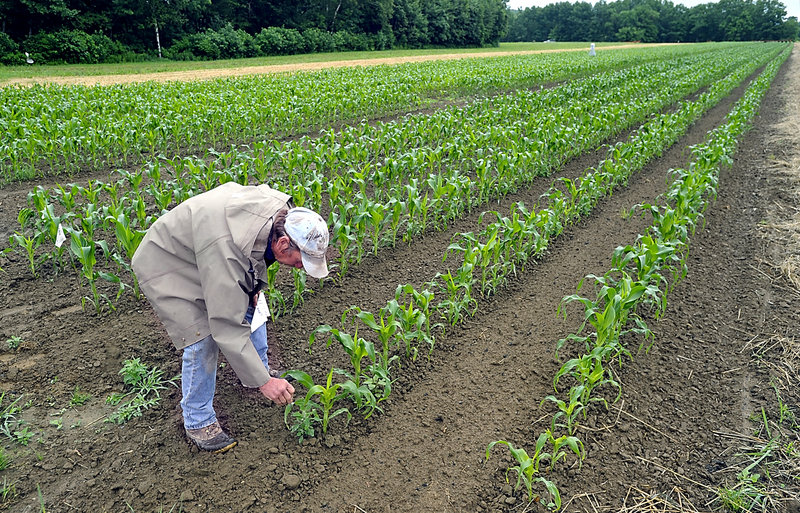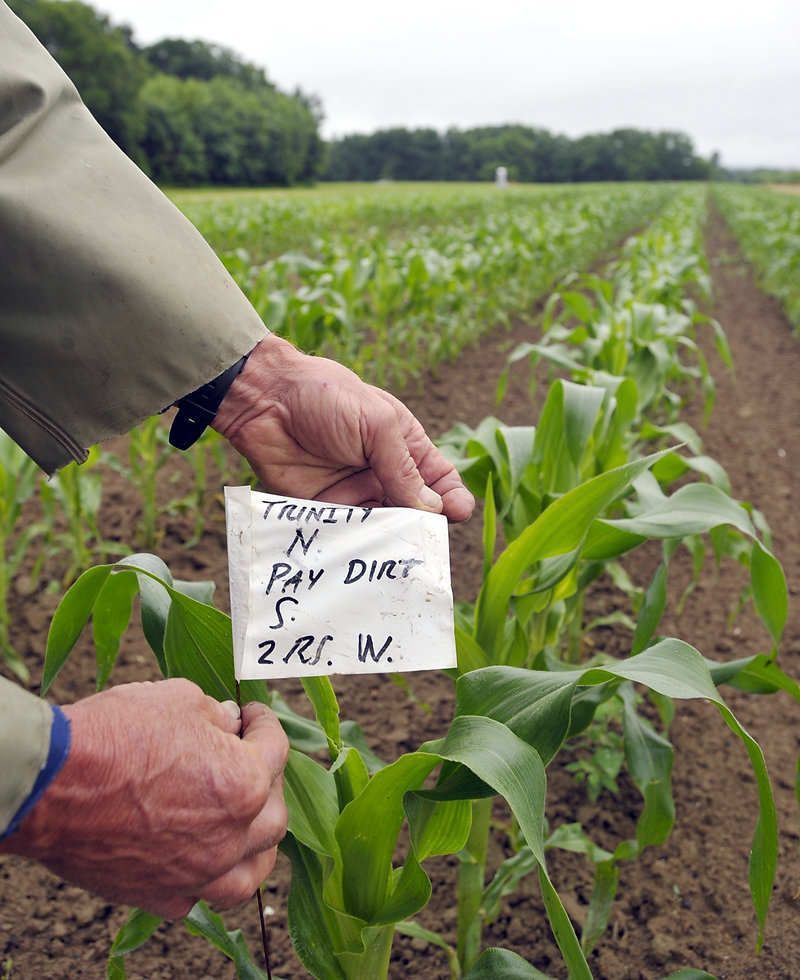Corn is a traditional Fourth of July treat, whether roasted on the grill, steamed in a large pot or layered into a lobster bake. Yet this all-American food is increasingly raising red flags among independent scientists and farmers.
This summer marks the first time that Monsanto’s Bt sweet corn has been approved for planting in Maine. Unlike genetically modified field corn, which farmers in Maine and across the country have been growing for years as livestock feed, sweet corn is intended for human consumption.
Bt, or Bacillus thuringiensis, is a naturally occurring soil bacteria that organic farmers have used for years as a diluted spray to fend off pests. Chemical companies such as Monsanto are now inserting patented strains of the toxins produced by Bt directly into the DNA of various plants. Bt sweet corn is the latest example.
Two recent studies illustrate the potential harm posed by these genetically modified Bt crops, which have never been independently tested for safety.
In February, the Journal of Applied Toxicology published the results of a study carried out at the University of Caen in France. In this study, researchers found that the toxins produced by genetically modified Bt plants can break open and destroy human cells.
While chemical companies and government regulators claim that these genetically modified toxins are destroyed by digestion, a recent Canadian study found otherwise. The study published in the journal Reproductive Toxicology detected genetically modified strains of Bt toxins in the blood of 93 percent of pregnant women and 80 percent of unborn babies tested. No one knows what the short-term or long-term effects of such exposure will be.
In a written statement, Monsanto spokesperson Carly Scaduto dismissed the Canadian study, saying “the study authors did not establish that the source of the protein detected was from GM plants.” In regards to the French study showing human cell death from genetically modified Bt toxins, Scaduto said that Bt “has no impact on non-target insects, animals or humans.”
Because genetically modified foods are never labeled, the only way to be sure you’re not eating Bt sweet corn is to buy certified organic sweet corn. A number of Maine stores are offering organic sweet corn this summer, and a handful of Maine farmers intend to sell it later in the season.
Rob Johanson, who farms Goranson Farm in Dresden, has planted three acres of organic sweet corn, which he estimates will be available by the end of July.
In addition to concerns about the health affects of genetically modified sweet corn, Johanson also worries about genetic drift from neighboring farms. Corn pollen travels on the wind between plants, which means that a conventional farmer growing genetically modified sweet corn or field corn can easily contaminate the fields of a neighboring organic farmer.
“We’re pretty well isolated here, and as far as I know, my neighbor, who’s conventional, isn’t growing any GMO sweet corn,” Johanson said. “But it is a concern, absolutely. Quite frankly, it’s trespass as far as I’m concerned. We should have the right to not be contaminated by those genetics if we so choose.”
A group of farmers led by the Organic Seed Growers and Trade Association is suing Monsanto in federal court. The case challenges the chemical company’s patents on genetically modified seeds, and seeks blanket protection from patent-infringement lawsuits for organic farmers should their crops become contaminated by Monsanto’s genetically altered plants. By law, certified organic crops cannot contain genetically modified material.
Most locally owned health food stores, which tend to only stock organic produce, are already selling organic sweet corn or have plans to do so once it becomes available from suppliers. The challenge for stores is that few organic farmers grow enough sweet corn to sell it wholesale.
“It’s not something that a lot of the local farms grow,” said Darren Stotz McFarland, produce buyer for Royal River Natural Foods in Freeport. “A lot of the farms we deal with don’t grow it on a large scale. If we can’t get it locally, we’ll probably order from our distributor, and that would probably come out of Massachusetts. It sells very well whenever we have it.”
Staff Writer Avery Yale Kamila can be contacted at 791-6297 or at: akamila@pressherald.com
Twitter: AveryYaleKamila
Send questions/comments to the editors.



